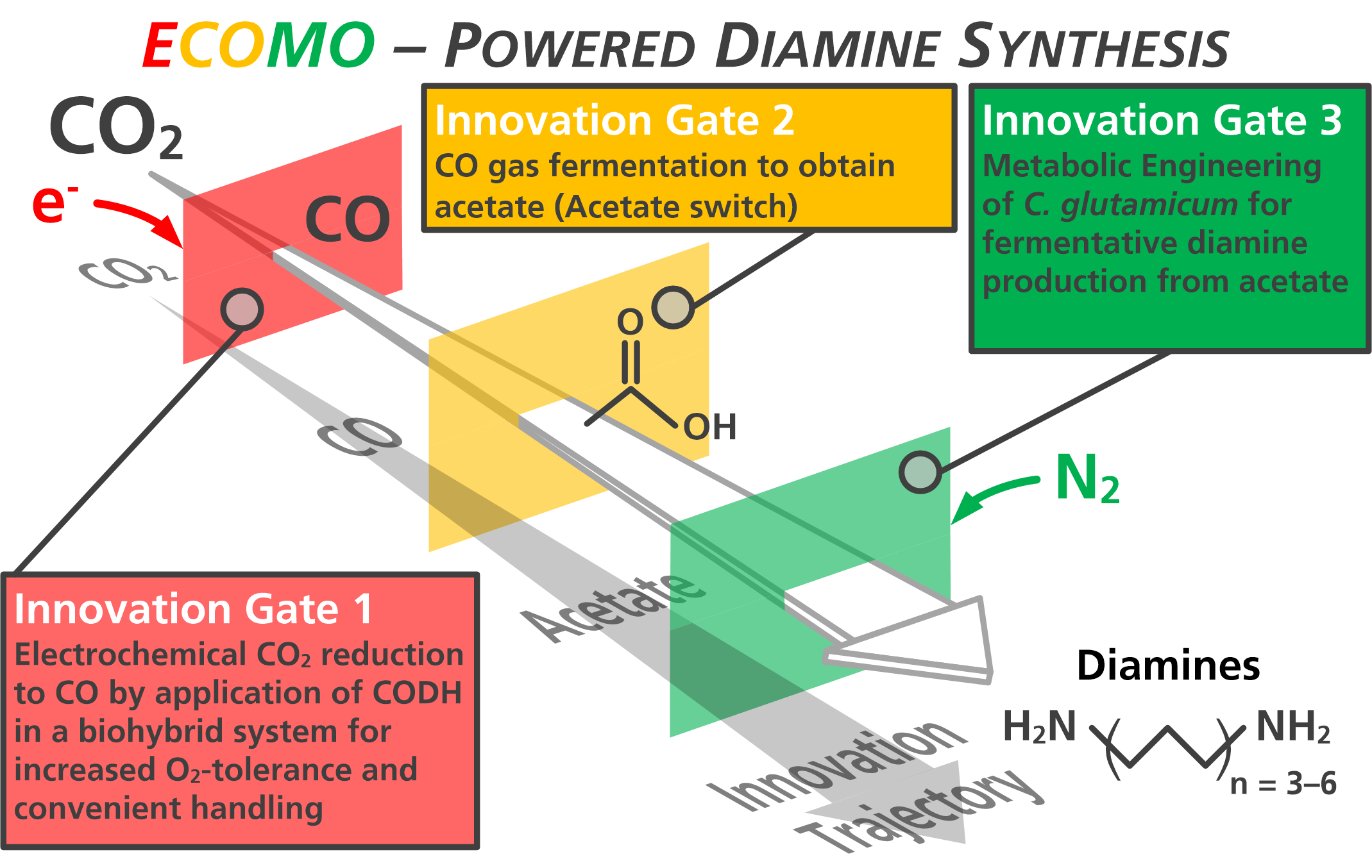ECOMO unites bioelectrocatalysis, biohybrid materials sciences, organic synthesis, technical microbiology, and process engineering for CO gas fermentation to acetate and a subsequent fermentative production of diamines.
ECOMO – Electrobiocatalytic cascade for bulk reduction of CO2 to CO coupled to fermentative production of high value diamine monomers
The access to platform chemicals made of CO2 and nitrogen sources as starting materials via sustainable processes requires radical innovations. Driven by the global need of existing and growing markets, combined technologies that make use of renewable energy and the greenhouse gas CO2, and the use of nature’s catalysts such as enzymes and microbial cells through biotransformation steps are expected to have a game changing impact. Such catalysts can operate at ambient conditions at high atom efficiency through environmentally and energetically friendly processes.
In this context ECOMO unites bioelectrocatalysis, biohybrid materials sciences, organic synthesis, technical microbiology, and process engineering for CO gas fermentation to acetate and a subsequent production of diamines. The fermentation steps will be achieved by specifically engineered microbial strains using CO or acetate as both the carbon source and energy carrier. As core novelty, the CO will be produced in situ apart from the electrode in the bulk solution from CO2 through a mediated electron transfer to free floating beads where CO-dehydrogenase is immobilized within the acetate forming bacterial cell culture. This will enable for the first time, full compatibility between electrochemical and biocatalytic processes. The high-level aim is to yield value-added diamine monomers indirectly from CO2 as building blocks for established classes of polymeric materials.

Project information
Project title
ECOMO – Electrobiocatalytic cascade for bulk reduction of CO2 to CO coupled to fermentative production of high value diamine monomers
Project duration
November 2023 – October 2026
Projects partners
- TU München Campus Straubing (TUMCS), Straubing, Germany (Coordination)
- Centre national de la recherche scientifique, Paris, France
- The Technical University of Denmark, Lyngby bei Kopenhagen, Denmark
- Eilenburger Elektrolyse- und Umwelttechnik GmbH, Eilenburg, Germany
Funding
This project has received funding from the European Union’s “European Innovation Council“ under grant agreement no 101115403, within the program “HORIZON‑EIC‑2022‑PATHFINDERCHALLENGES‑01‑01 – Carbon dioxide and nitrogen management and valorisation“.

 Fraunhofer Institute for Interfacial Engineering and Biotechnology IGB
Fraunhofer Institute for Interfacial Engineering and Biotechnology IGB